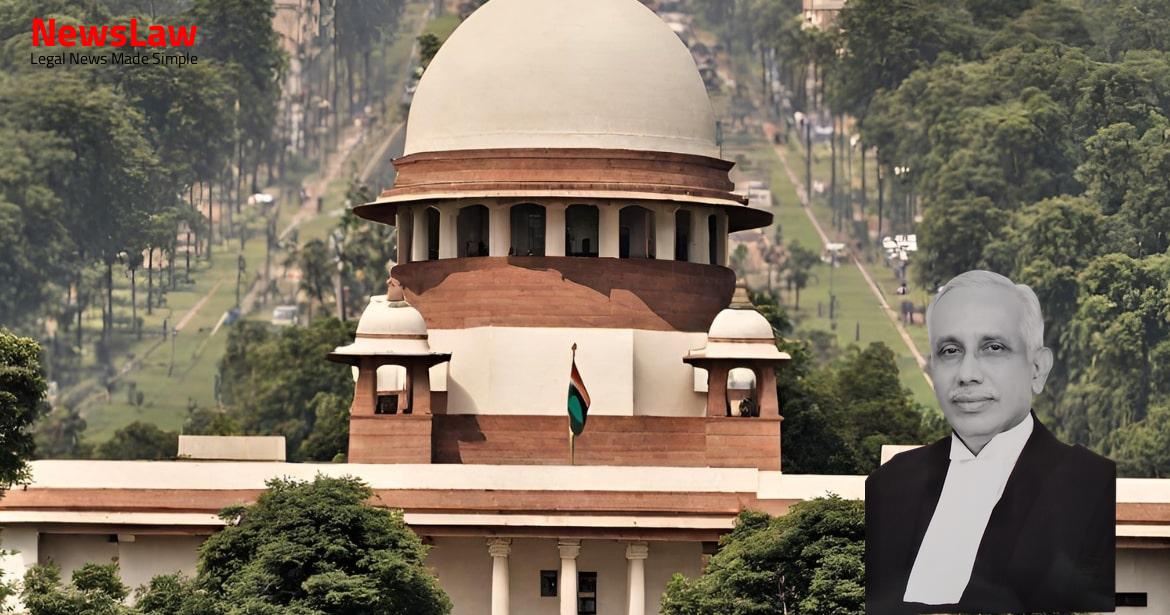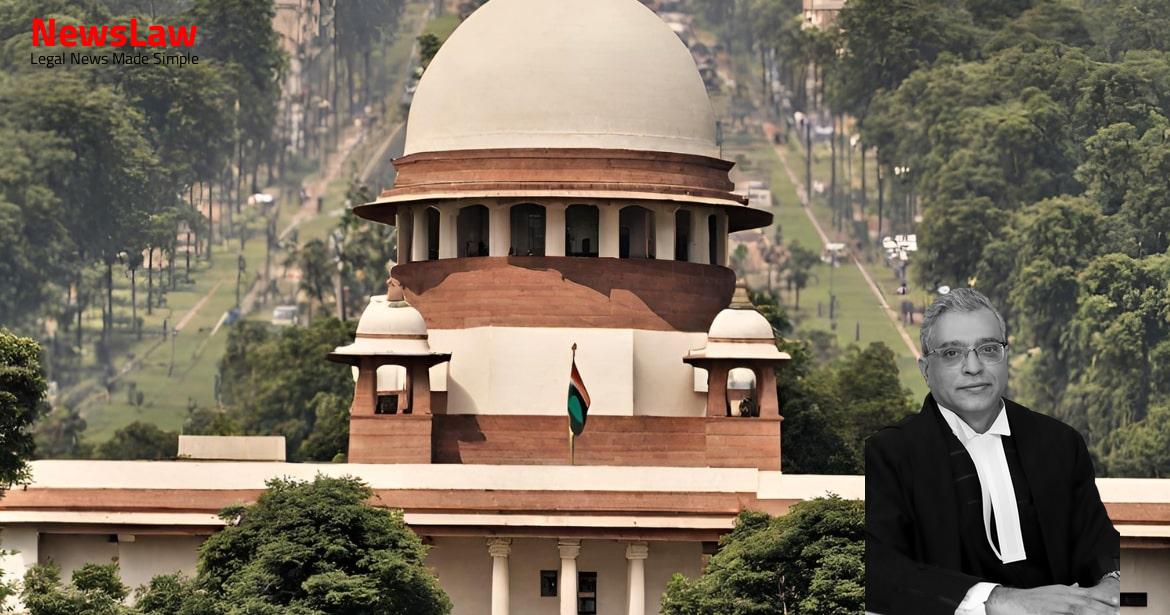Explore a recent court judgment that delves deep into the legal analysis of foreign arbitration laws within the Indian jurisdiction. The court provides a detailed breakdown of the distinctions between international commercial arbitration and foreign awards under the Arbitration Act, emphasizing the importance of clarity and precision in legal processes. Stay tuned for a comprehensive understanding of how the law navigates arbitration scenarios involving Indian parties and foreign jurisdictions.
Facts
- The Claimant shall pay to the Respondent INR 25,976,330.00 and US$40,000.00 in legal costs and expenses with accumulated interest, if any, in accordance with the Indian Interest Act, 1978.
- The Claimant’s claims for breach of contract, damages, and interest thereon are rejected.
- The respondent initiated enforcement proceedings under sections 47 and 49 of the Arbitration Act before the High Court of Gujarat due to the appellant’s failure to pay the amounts granted in the final award.
- Two Indian parties can arbitrate outside India according to the Supreme Court of India’s decision in Reliance Industries Ltd v. Union of India (2014) 7 SCC 603.
- The learned sole arbitrator, Mr. Ian Leonard Meakin, dismissed the respondent’s preliminary application based on this decision.
Also Read: Interpretation of Section 43B: Debentures vs. Interest Payment
Issue
- Can two Indian companies choose a forum for arbitration outside India?
- Can an award made at such a forum outside India be considered a “foreign award” under the Arbitration Act?
- Can an award made at such a forum outside India be enforceable under the New York Convention?
Also Read: Ensuring Transparency in Electoral Processes
Arguments
- The petitioner argues that international commercial arbitration is the only type of foreign award contemplated under Part II of the Arbitration Act.
- Refers to the Atlas Exports case which was decided under the Arbitration Act, 1940, arguing that it does not apply to the present case under the Act of 1996.
- States that even two Indian parties must apply substantive Indian law unless a foreign element is involved, citing the Prohibition of Benami Property Transactions Act, 1988.
- Relies on U.S. domestic arbitration law to show that arbitration can only take place abroad when it involves a foreign element.
- Argues that the impugned judgment by the Gujarat High Court lacks jurisdiction as it does not fall under international commercial arbitration.
- Claims Mumbai is the closest connection for the seat of arbitration due to all factors connecting the arbitration to India with no foreign element involved.
- Contends that sections 23 and 28 of the Contract Act do not prohibit the choice of a foreign seat in arbitration.
- References the Enercon case to support the argument for Mumbai as the seat of arbitration due to all connections to India.
- Alleges that the judgment in Atlas Exports was not adequately considered regarding the issues under sections 23 and 28 of the Contract Act.
- Argues against the jurisdiction of an Indian seat for arbitration between two Indian parties, citing conflicts between the Commercial Courts Act and the Arbitration Act.
- Emphasizes that the Arbitration Act should only apply to arbitration with a foreign element when parties arbitrate outside India.
- Points out that the context of section 44 of the Arbitration Act is specifically related to international commercial arbitration.
- Utilizes the non-obstante clause in section 21 of the Commercial Courts Act to support the argument against the enforceability of the award under section 48 of the Arbitration Act.
- Argues that the expression ‘unless the context otherwise requires’ in section 44 only applies to arbitration seats outside India.
- Supports the argument with legal precedents such as the TDM case to reinforce the position that two Indian parties can choose a foreign seat of arbitration.
- Cites the Foreign Awards Act’s provisions to show that two Indian parties can agree to an arbitration seat outside India.
- Raises concerns about breaching the wall between Part I and Part II of the Arbitration Act, as held in the BALCO case.
- The contention that the judgment in the case of TDM Infrastructure is not applicable because it is by a Single Bench is not convincing, as the Division Bench Judgment in Atlas Exports is a binding precedent.
- The principle of law laid down by the Supreme Court in the case of Atlas Exports is considered binding and applicable to the present dispute, hence other arguments are unnecessary.
- Based on the seat of arbitration and the nationality of the parties, arbitration is classified as ‘International Arbitration’, with the governing law determined by the seat of arbitration.
- It has been established in Atlas Exports that two Indian companies can agree to have a seat of arbitration outside India.
- Interpretation of provisions in the Commercial Courts Act regarding ‘international commercial arbitration’ and the definition of the Court were discussed in the context of the case.
- The argument for Mumbai being the seat of arbitration was refuted, as the settlement agreement designated Zurich as the seat and Mumbai as a convenient venue, which both parties accepted.
Also Read: Limitations of Court’s Power in Modifying Arbitral Awards
Analysis
- The judgement delves into the distinctions between International Commercial Arbitration and Foreign Awards under the Arbitration Act, 1996.
- It emphasizes that Part I and Part II of the Act are mutually exclusive, each governing different aspects of the arbitration process.
- The Act provides clear definitions and delineations between domestic awards, international awards, and foreign awards to prevent overlap and provide clarity in enforcement processes.
- The analysis underscores the importance of the territoriality principle within the Act, ensuring that Part I does not apply to foreign-seated arbitrations.
- The judgement also highlights the significance of the seat of arbitration in determining the applicability of Part I or Part II of the Arbitration Act.
- It discusses various legal provisions, definitions, and the application of conflict of law rules in different arbitration scenarios.
- The provision of the Arbitration Act regarding foreign awards allows for enforcement of awards made in a territory outside India.
- Foreign awards must be treated as binding and can be relied upon in legal proceedings in India.
- Specific evidence, such as the original award, agreement for arbitration, and translations if necessary, must be produced when applying for the enforcement of a foreign award.
- The conditions for enforcement of foreign awards include proving the validity of the agreement under the applicable laws and jurisdiction.
- Exceptions exist to ensure that certain contracts referring disputes to arbitration are not rendered illegal.
- Section 28 of the Arbitration Act makes a clear distinction between purely domestic arbitration and international arbitration with a seat in India.
- In arbitrations under Part I where section 2(1)(f) does not apply, the Tribunal must decide the dispute by applying Indian substantive law applicable to the contract.
- Two or more Indian parties cannot avoid Indian substantive law by resorting to arbitration.
- When the seat of arbitration is outside India, the conflict of law rule of the country in which the arbitration takes place must be applied.
- The expression ‘whether the place of arbitration is situated in India’ does not indicate an intention to give extraterritorial operation to Part I of the Arbitration Act of 1996.
Decision
- The arbitration award is final and binding on both parties.
- The juridical seat of arbitration between the parties is Zurich.
Case Title: PASL WIND SOLUTIONS PRIVATE LIMITED Vs. GE POWER CONVERSION INDIA PRIVATE LIMITED (2021 INSC 264)
Case Number: C.A. No.-001647-001647 / 2021



